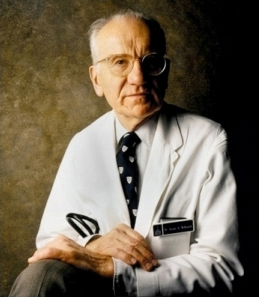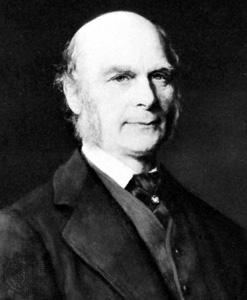External links
| This genetics article is a stub. You can help Wikipedia by expanding it. |
The International Congress of Human Genetics is the foremost meeting of the international human genetics community. The first Congress was held in 1956 in Copenhagen, and has met every five years since then. The Congress is held under the auspices of the International Federation of Human Genetics Societies, an umbrella organization founded by the American Society of Human Genetics, the European Society of Human Genetics and Human Genetics Society of Australasia. Congresses have been held in such diverse venues as Berlin, Brisbane, Chicago, The Hague, Jerusalem, Mexico City, Paris, Rio de Janeiro, Vienna and Washington.
The purview of the International Congress of Human Genetics is all aspects of human genetics, including research, clinical practice, and education. The Congress now attracts thousands of participants, including M.D. medical geneticists, Ph.D. human geneticists and genetic counselors from 80 or more countries. It is by far the largest human genetics meeting in the world.
| This genetics article is a stub. You can help Wikipedia by expanding it. |

Hermann Joseph Muller was an American geneticist, educator, and Nobel laureate best known for his work on the physiological and genetic effects of radiation (mutagenesis), as well as his outspoken political beliefs. Muller frequently warned of long-term dangers of radioactive fallout from nuclear war and nuclear testing, which resulted in greater public scrutiny of these practices.

Victor Almon McKusick was an American internist and medical geneticist, and Professor of Medicine at the Johns Hopkins Hospital, Baltimore. He was a proponent of the mapping of the human genome due to its use for studying congenital diseases. He is well known for his studies of the Amish and, what he called, "little people". He was the original author and, until his death, remained chief editor of Mendelian Inheritance in Man (MIM) and its online counterpart Online Mendelian Inheritance in Man (OMIM). He is widely known as the "father of medical genetics".

Human behaviour genetics is a subfield of the field of behaviour genetics that studies the role of genetic and environmental influences on human behaviour. Classically, human behavioural geneticists have studied the inheritance of behavioural traits. The field was originally focused on testing whether genetic influences were important in human behavior. It has evolved to address more complex questions such as: how important are genetic and/or environmental influences on various human behavioral traits; to what extent do the same genetic and/or environmental influences impact the overlap between human behavioral traits; how do genetic and/or environmental influences on behavior change across development; and what environmental factors moderate the importance of genetic effects on human behavior. The field is interdisciplinary, and draws from genetics, psychology, and statistics. Most recently, the field has moved into the area of statistical genetics, with many behavioral geneticists also involved in efforts to identify the specific genes involved in human behavior, and to understand how the effects associated with these genes changes across time, and in conjunction with the environment.
Sir Walter Fred Bodmer is a German-born British human geneticist.

Anthony William Fairbank Edwards, FRS is a British statistician, geneticist and evolutionary biologist. He is the son of the surgeon Harold C. Edwards, and brother of medical geneticist John H. Edwards. He has sometimes been called "Fisher's Edwards" to distinguish him from his brother, because he was mentored by Ronald Fisher.
Sir Peter James Donnelly is an Australian mathematician and Professor of Statistical Science at the University of Oxford, and the CEO of Genomics PLC. He is a specialist in applied probability and has made contributions to coalescent theory. His research group at Oxford has an international reputation for the development of statistical methodology to analyze genetic data.

Medical genetics is the branch of medicine that involves the diagnosis and management of hereditary disorders. Medical genetics differs from human genetics in that human genetics is a field of scientific research that may or may not apply to medicine, while medical genetics refers to the application of genetics to medical care. For example, research on the causes and inheritance of genetic disorders would be considered within both human genetics and medical genetics, while the diagnosis, management, and counselling people with genetic disorders would be considered part of medical genetics.
Tan Jiazhen, also known as C. C. Tan, was a Chinese geneticist. He was an academician of the Chinese Academy of Sciences and a foreign member of United States National Academy of Sciences. Tan was a main founder of modern Chinese genetics.
The International Congress of Genetics (ICG) is a five yearly conference for geneticists. The first ICG was held in 1898. Since 1973 It has been organized by the International Genetics Federation (IGF). The aim of the congress is to reflect on progress made in genetics, to celebrate the best of contemporary research and to anticipate future developments in the discipline. It is one of the most important genetics meetings, presenting all subfields of the discipline. These subfields cover all present-day experiments using the powerful genomic technologies. Also, the benefits and wider implications of genetic research to societies at large are explored.
James Van Gundia Neel was an American geneticist who played a key role in the development of human genetics as a field of research in the United States. He made important contributions to the emergence of genetic epidemiology and pursued an understanding of the influence of environment on genes. In his early work, he studied sickle-cell disease and thalassemia conducted research on the effects of radiation on survivors of the Hiroshima atomic bombing. In 1956, Neel established the University of Michigan Department of Genetics, the first department of human genetics at a medical school in the United States. He was elected a Fellow of the American Academy of Arts and Sciences in 1971.

The Centre for Arab Genomic Studies (CAGS) is a not-for-profit study centre aimed at the characterization and prevention of genetic disorders in the Arab World. The Centre is closely associated with the Sheikh Hamdan Award for Medical Sciences. One of the major projects of CAGS is the Catalogue for Transmission Genetics in Arabs (CTGA), an online, freely accessible database of genetic disorders reported from the Arab World. CAGS has been involved in the Human Variome Project as a representative of the Arab region and has been one of the first organizations to take an active lead in working on the project. CAGS organizes the Pan Arab Human Genetics Conference every alternate year, to provide a platform for discussion and education on genetic issues in the region.
The American Society of Human Genetics (ASHG), founded in 1948, is the primary professional membership organization for specialists in human genetics worldwide. As of 2009, the organization had approximately 8,000 members. The Society's members include researchers, academicians, clinicians, laboratory practice professionals, genetic counselors, nurses, and others who have a special interest in the field of human genetics.
The Genetics Society of America (GSA) is a scholarly membership society of more than 5,500 genetics researchers and educators, established in 1931. The Society was formed from the reorganization of the Joint Genetics Sections of the American Society of Zoologists and the Botanical Society of America.

A geneticist is a biologist who studies genetics, the science of genes, heredity, and variation of organisms.

The Behavior Genetics Association (BGA) is a learned society established in 1970 and which promotes research into the connections between heredity and behavior, both human and animal. Its members support education and training in behavior genetics; and publish Behavior Genetics, a journal on the topic.
P. Michael Conneally, Ph.D., was the Distinguished Professor Emeritus at the Indiana University School of Medicine in the Department of Medical and Molecular Genetics. He was certified in medical genetics by the American Board of Medical Genetics and a founding fellow of the American College of Medical Genetics. He was a human geneticist interested in discovering the location of human genes that cause disease, specifically the mapping of Mendelian and complex inherited diseases including the study of Huntington's disease, genetics of alcoholism, diabetes and manic depressive illness. In collaboration with researchers from Columbia University and James F. Gusella of Harvard University, he was the first to use DNA techniques to map a human gene. In the past twenty years he has helped map approximately 20 human genes and his work has resulted in the identification of 20% of the human genome. Conneally received his bachelor's degree in Agriculture with Honors from University College Dublin in 1954 and Master’s and Ph.D. from the University of Wisconsin, Madison.
The International Society for Forensic Genetics – ISFG is an international non-profit scientific society founded in 1968. The main goal of the society is to advance the field of forensic genetics, also termed DNA profiling, through dissemination of scientific results and opinions, communication amongst scientists and education. The bi-annual international ISFG congresses, international workshops and seminars, the society’s scientific journal, and the scientific recommendations on current topics all work towards this goal. The society’s website contains up to date information on all activities.
The Population Genetics Group is an annual meeting of population geneticists held in the UK since 1968. The meetings have been very influential in promoting population and evolutionary genetics in the UK, Europe, and elsewhere. There have been long-standing connections between the PopGroup meeting and the journal Heredity. In 2017 Heredity published a special issue to mark the 50th meeting of the PopGroup.

Muntaser Ibrahim is a Sudanese geneticist and professor of molecular biology at the University of Khartoum, where he leads its Institute of Endemic Diseases. Science described him as "one of Sudan's most distinguished living scholars". His research focuses on human genetic diversity in Africa, human genetic variation contributing to susceptibility to infectious diseases such as malaria and leishmaniasis, and cancer genetics.
Margaret Ann Pericak-Vance is an American human geneticist who is the Dr. John T. Macdonald Foundation Professor of Human Genetics and director of the John P. Hussman Institute for Human Genomics at the University of Miami. She is known for her research on the genetics of common human diseases. This research has led to a number of findings of genes that increase the risk of certain diseases, such as apolipoprotein E and Alzheimer's disease, IL7R and multiple sclerosis, and complement factor H and macular degeneration.